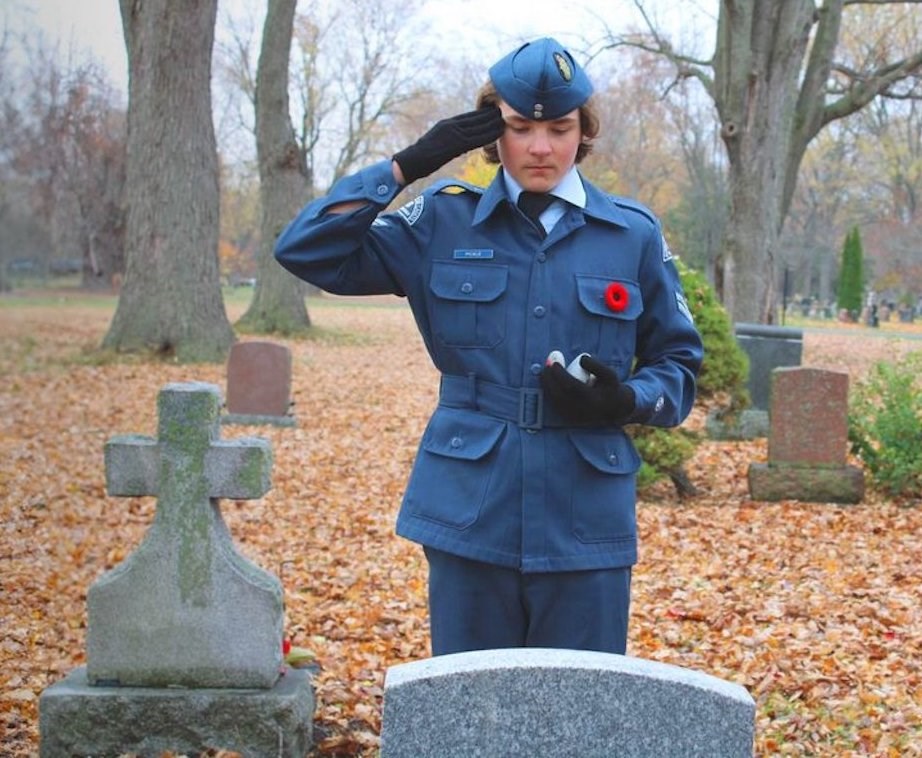Serving Canadians since 1909, the Last Post Fund wants to ensure every veteran in Canada gets buried with the dignity and honour they deserve.
To this end, the Last Post Fund offers two funding streams: the Unmarked Graves Program and the Funeral and Burial Program.
The Veterans Affairs Canada (VAC) Funeral and Burial Program ensures that eligible Veterans receive dignified funeral and burial services. The program is administered on behalf of VAC by the Last Post Fund
In terms of eligibility and criteria, according to the Last Post Fund website, a veteran is defined as any former member of the Canadian Armed Forces who successfully underwent basic training and was honourably discharged.
Once the veteran has met the service-related criteria, eligibility for funeral and burial benefits is established either through financial means testing to determine financial need or as a matter of right.
“Matter-of-right refers to a situation where a VAC medical authority determines that the cause of death is due to service, meaning a condition for which Veterans Affairs Canada provided a disability benefit,” states the Last Post Fund’s website.
For the other program dealing with unmarked graves, the objective of the Unmarked Graves Program is to provide a permanent military marker for eligible veterans who lie in unmarked graves.
The program is available to eligible veterans whose grave has not had a permanent headstone or foot marker for five years or more, and who have not previously received funeral and burial funding from the Last Post Fund or Veterans Affairs Canada.
Glenn Miller, president of the Alberta and NWT branch of the Last Post Fund, says veterans, of course, like any Canadian, are responsible for their own estate planning. However, sometimes things aren’t so easy or simple.
“This is a mechanism where sometimes families just can't afford funerals, and stuff like that,” he said, “and it's always challenging. To honour a veteran loved one, and if you don't have the money, this is why we exist.”
In the early days, when the Last Post Fund came into existence, Miller said it was a veteran of the Boer War who came across an impoverished Crimean War veteran while working as an orderly in a Montreal hospital. He noticed the man had no money to pay for his funeral when he died. In those days, said Miller, it was common to bury impoverished individuals who had no family to claim them in either a Potter’s Grave or donate their bodies to science. The Boer War veteran, whose name was Arthur Hair, essentially passed a hat around among veterans he knew to help pay for the burial. Later, the federal government realized the need for such a service, and officially adopted the Last Post Fund as its means of overseeing the funding for this important work.
As for the Unmarked Graves Program, Miller said it usually takes a little more legwork on the part of his 10-member committee and other volunteers across Alberta to track down veterans in need of a gravestone, or alternatively to ensure a gravestone which has become decayed and unreadable over time is eligible for a new stone paid for by the Canadian government.
“Any veteran who lies in an unmarked grave for more than five years,” explained Miller, "and once we discover, you know, there might be a gap between a couple of stones in a cemetery and we find out that there's a veteran there. Then we can prove Veterans Affairs Canada to get a military marker to honour that service.”
Miller said the organization asks no questions if it has been more than five years and a veteran's grave is in need of a stone.
“The family members can call the 1-800 number and start the (stone acquisition) process,” said Miller. “You know, if Uncle John in Saskatoon, they know through family connections for whatever reason– we don't judge anything more than five years– he is eligible to be applied for under the Unmarked Graves Program.
When a new stone is put on a veteran's grave in Alberta or NWT, Miller, or his other committee members and volunteers, will often organize a small graveside ceremony to honour the veteran’s service.
In fact, Miller said he is always looking for more volunteers to be dispatched out in various regions to investigate instances of unmarked or replacement gravestones needed for veterans: To verify their presence in the cemetery, confirm their military service record, and coordinate with the family to get a new stone delivered.
“We want to make sure we get it right and then once the stone is installed it is looked after by the Government of Canada forever for maintenance-wise,” Miller said.
For more information on how to apply for the Last Post Fund or volunteer with the organization visit www.lastpostfund.ca or call 1-800-465-7113.




